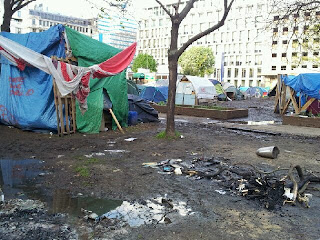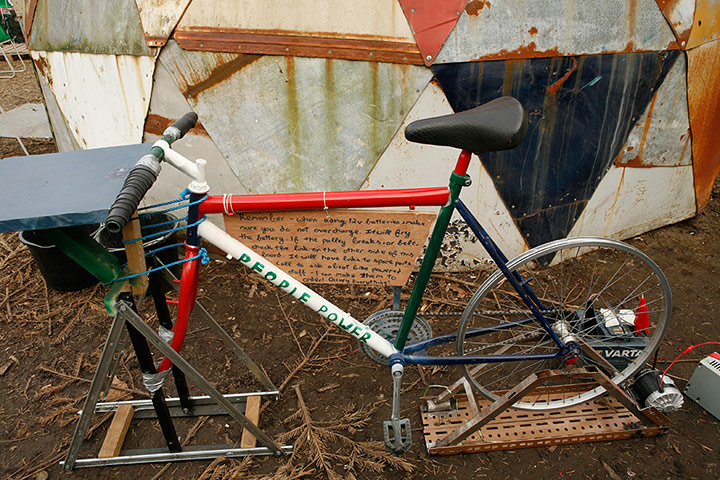 Over the last couple of decades, this small nation of 5.1 million people living in the 8th largest country in Europe has created arguably the best education system in the world. While the land is one of extremes, where temperatures range from -50C in the winter to +37C in the summer, there is a remarkable level of uniformity when it comes to primary and secondary level education. However, although Finnish education pops up quite regularly in the news over here, I have yet to see a detailed description of how the system works. So here goes.
Over the last couple of decades, this small nation of 5.1 million people living in the 8th largest country in Europe has created arguably the best education system in the world. While the land is one of extremes, where temperatures range from -50C in the winter to +37C in the summer, there is a remarkable level of uniformity when it comes to primary and secondary level education. However, although Finnish education pops up quite regularly in the news over here, I have yet to see a detailed description of how the system works. So here goes.The world-beating success of Finnish education can be boiled down to four basic yet powerful features. The first is a strong emphasis on producing high calibre teachers. Second, there are no centrally mandated targets or league tables. Third, fee paying private schools do not exist. And, finally, the system engenders a strong sense of responsibility in one's own actions.
More teacher training, less league tables
As a profession, teachers in Finland are held in high esteem. Although the pay isn't as good as that of, say, lawyers or doctors, the entry requirements are nearly as demanding. Secondary school teachers must have at least a Masters degree in the subject they wish to teach; while places for primary school teacher training are highly oversubscribed and very difficult to obtain.
After qualifying as a teacher, however, the professional is left to do their job and, provided there are no complaints, the state stays out of the classroom. There are virtually no centrally-imposed targets, rankings or league tables to distract teachers from their work at hand. In other words, get the professional right, and a good product will follow.
 This lack of testing in favour of professional autonomy is especially interesting given the recent revelations here in the UK of examiners setting standards as low as possible; teachers feeling compelled to help their students achieve high grades, whatever the cost; and the rampant grade inflation that the UK has seen over the last decade. It would seem that the target-based culture has incentivised the different cogs of the UK's education system to focus on ticking boxes rather than on the process of teaching itself. To adapt Charles Moore's brilliant observation about mental processes: education in Britain has become industrial, whereas it should be horticultural.
This lack of testing in favour of professional autonomy is especially interesting given the recent revelations here in the UK of examiners setting standards as low as possible; teachers feeling compelled to help their students achieve high grades, whatever the cost; and the rampant grade inflation that the UK has seen over the last decade. It would seem that the target-based culture has incentivised the different cogs of the UK's education system to focus on ticking boxes rather than on the process of teaching itself. To adapt Charles Moore's brilliant observation about mental processes: education in Britain has become industrial, whereas it should be horticultural.By contrast, the frosty northern garden that calls itself Suomi has seen no grade inflation in its upper secondary school matriculation exams (equivalent of UK A-levels). Year after year, the only ones to receive an A in each subject are those whose results are in the top 5% nationally. And the next 10% receive a B, and so on. The grade A+ doesn't even exist - and rightly so because as a concept it's as ridiculous as the Americanism "I'm with you 110 percent."
Furthermore, rather than a constant barrage of assessments and rankings, the focus in Finnish classrooms is on teaching kids how to learn - and exam results only gain emphasis when pupils hit their teens. Even so, Finland has consistently led the international rankings compiled by the Programme for International Student Assessment (PISA). Meanwhile, despite comparatively high spending per pupil, the UK has unfortunately been sliding down the list and in the latest study of 65 countries managed only 25th place.
The high value of free education
Another important factor in creating the best education system in the world is the total absence of fee paying schools - as paradoxical as that may sound to people in the UK or the US, for example. In Finland, primary and secondary school is free at the point of delivery, whether you live in Helsinki or Inari, and whichever school you attend.
Schools in Finland (except Steiner education) are state-funded, and local authorities have a statutory duty to provide free education for each child in their area. The local authorities receive funds from the government which are earmarked for education, and the amount is directly linked to the number of school aged children in the municipality - a pupil premium, if you will, of about £5300 p.a. per student.
While the majority of schools have been created and are also run by local authorities, anyone can set up a school provided they meet three requirements: a suitable building and environment; a certain ration of teachers to children; and a curriculum that passes the local authority's vetting process. If a school fails to enroll enough students, it will be forced to shut down due to not qualifying for enough funds to sustain the above requirements.
As for the types of schools in Finland, there is a core centrally-mandated curriculum called Opetussuunnitelma (OPS), which aspirant headmasters must prove that their school will provide. After satisfying its demands to teach the basics (Finnish, maths, science, languages, history, physical education, etc.), each school can then bolt on any manner of specialities with which to attract students and, by extension, government funding. For example, some schools offer additional music, and others focus on sports, or drama, or even horse riding. Some schools might offer the typical local authority school curriculum to 95% of its students, and then offer a specialist class as well.
In this way, the Finnish education promotes equality of opportunity as far as the state can deliver, and, crucially, it's not disfigured into that corrosive form of levelling down known as equality of outcome. One school may have a better French teacher, while another may have a superior history teacher, but, overall, children receive the same amount of attention and investment from the government, after which they are allowed to grow and shine to the extent that they work and, therefore, deserve.
Competition, choice and responsibility
When it comes to upper secondary level education, there are some disparities in achievement between particular schools, but this is mainly due to a healthy dose of competition and meritocracy.
Each year, those leaving lower secondary school (16 year olds) can apply to any upper secondary school, whether a vocational polytechnic or an academic high school, anywhere in the country. (I will focus on academic high schools here, as that is where I went.) The schools, in turn, are allowed to cherry-pick the highest achieving applicants first, based on their final year grades from lower secondary school. After a school has filled up all its places with the cream of those who applied, the unsuccessful applicants are then assigned to their second, then third, and so on, choice of school - meaning some nail-biting summer months for the wannabe high schoolers. Every pupil is guaranteed a place, but getting into your dream school is down to whether you worked hard enough and performed well enough to earn it.
Upper secondary level schools in towns tend to receive more applicants than those in the countryside, which naturally drives up the entry requirements at urban institutions. This, however, is compensated by the government's student grants, whereby students can avail of a free monthly allowance and subsidized housing should they wish to study at a school away from home. And this grant is enough to live on, if not in total comfort, then certainly at the level of bohemian luxury associated with 21st century student-life.
Thus, even though there are regional and local differences in the standards of education, there is no reinforcing dynamic where a few schools do ever better while others sink ever lower. Instead, people can choose with their feet and study at any upper secondary level school in the country, provided they have worked hard enough in the classroom to earn their place.
 |
| The new Cygnaeus Lukio |
The high level of achievement attained by students in Finland's upper secondary schools is also, I think, partly due to how the curriculum places a lot of responsibility on pupils to organise and manage their own education. In a nutshell, one must complete 75 six-week courses in no less than 2, and no more than 5 years. Forty-five of these are compulsory (e.g. maths, sciences, Finnish, English, Swedish, PE and history), and the rest are electives (home economics, wood work, art, philosophy, psychology, French and German, or extra maths, or additional sciences, for example). Each course is offered a few times a year, and completing one necessitates passing an exam at the end of the six weeks. Students must plot out their own timetables, determined by what they want to study and when, and if you fail an exam, you have one chance to take it again, or risk having to repeat the whole course (which is the equivalent of throwing an almighty spanner into your carefully laid out timetable). The required amount of courses must be passed before pupils are allowed to attempt the final matriculation exams.
 |
| The coveted hat of a high school graduate |
So, there you have it, a 1.01 on the Finnish education system, where it matters not a jot whether children eat their morning porridge with a silver spoon or a wooden one because when they get to their state-funded classrooms, the children will all sit side-by-side. They might not treat each other equally - kids seldom do - but at least the state does.
Granted, this type of education system, and the state's investment into each citizen, does not come for free. Finland does have high taxes, but there is currently only a small difference between income tax in the UK and Finland. And while a VAT rate of 23% does make things significantly more expensive than they are in the UK, it is seen by most as an acceptable cost for promoting a society based on fairness.
 Also, it has often been said that providing a consistently high standard of education is easier in Finland, with its highly homogeneous society, than it is in a multicultural place like Britain. However, recent studies seem to contradict this analysis as Finnish schools with higher than average immigrant students are also producing superb results.
Also, it has often been said that providing a consistently high standard of education is easier in Finland, with its highly homogeneous society, than it is in a multicultural place like Britain. However, recent studies seem to contradict this analysis as Finnish schools with higher than average immigrant students are also producing superb results.With this kind of education system, it's therefore unsurprising that the social and economic balance that Ms Toynbee is after is alive and well in up north in Finland. And, even if its still no Utopia, and not everybody manages to bag their dream career, it's still a pretty good state of affairs when one's postcode and family wealth are less important in determining later success in life than one's work ethic, initiative and individual choices.


.jpg/800px-Narrenschiff_(1549).jpg)
.jpg/300px-Melencolia_I_(Durero).jpg)
.jpg)